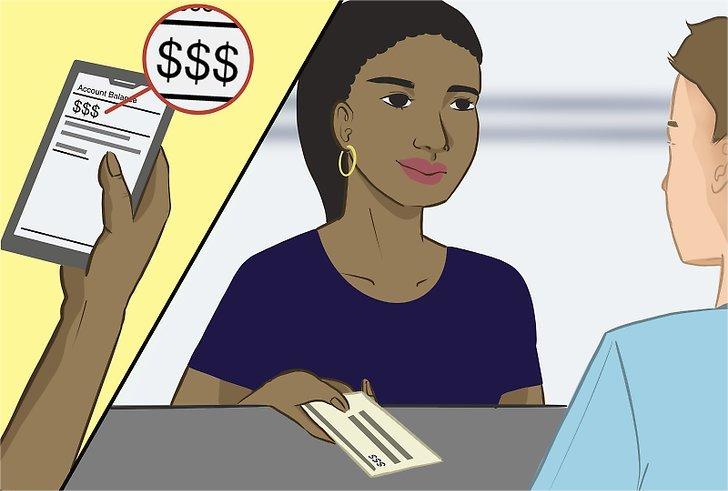
If you feel helpless because debt collectors are calling for payment, you have more power than you realize. You just need to be aware of your rights and how to use them.
The Fair Debt Collection Practices Act is a federal law that governs practices by third-party debt collectors — those who buy a delinquent debt from an original creditor, like a credit card company. The debt collection law gives consumers crucial protections against predatory practices, such as calling you late at night, using harassing language and pursuing you for a debt you don’t owe. Exercising these rights can help you gain control of your dealings with debt collectors.
You should also be aware that an update to the rules implementing the FDCPA, which went into effect in late 2021, helped modernize the law. The updates allow debt collectors to use newer communication technologies, like email, text message and social media, and clarify certain aspects of the debt collection law. But some consumer advocates worry the changes may create privacy concerns for consumers. Your state may offer additional consumer protections, so you may want to contact a local consumer legal office for advice.
Here are five ways the Fair Debt Collection Practices Act protects you — and what to do if your rights are violated:
You control communication with debt collectors
You can limit when and how third-party debt collectors contact you. They’re not allowed to call at any inconvenient time or place and can’t tell third parties about your debt.
In practice, this means that debt collectors:
- Can’t contact you before 8 a.m. or after 9 p.m.
- Can’t contact you at work once you ask them not to
- Must communicate through your attorney if you’re represented by one
- Can’t communicate about your debt with third parties, such as your employer, neighbors and family
- Must cease contact entirely if you request it
Strategy: For now, it’s not enough to state over the phone how you want the debt collector to communicate with you. The Fair Debt Collection Practices Act states you must make the request in writing for it to be enforceable. The Consumer Financial Protection Bureau has sample letters that can help you structure your request. But with the update to the FDCPA that went into effect in late 2021, consumers are now able to limit how debt collectors communicate with them through newer communication channels, like text message, email and social media message.
A debt isn’t gone just because you ask the collector to cease contact. The collector can still seek payment through a lawsuit, which can lead to wage garnishment. Back to top
You’re protected from harassing or abusive practices
The Fair Debt Collection Practices Act prohibits debt collectors from using any harassing or abusive practices in an attempt to collect the debt.
“Harassment is more than just repeatedly asking you to pay money,” says bankruptcy attorney Jay Fleischman. “It’s what’s being done on a day-to-day basis. It’s something that’s misleading and done for the purpose of coercing you into doing something that you otherwise wouldn’t want to do, or couldn’t do, for fear of retribution.”
Along with other restrictions, debt collectors cannot:
- Use profane language
- Threaten or use violence
- Call you repeatedly to annoy or harass (Note that the update to the FDCPA implementation rules that went into effect in late 2021 clarify that this will be defined as more than once a day about a specific debt, or within a week of having a conversation with you about a debt.)
- Call you to collect payment without identifying themselves as debt collectors
- List your debt for sale to the public
Strategy: Overly aggressive or abusive practices might be a sign that you’re dealing with a scam debt collector. Taking the time to figure out if you’re in contact with a scammer can save you from the expensive mistake of paying a debt you don’t owe.
Keep a log of any abusive collection practices. Read below about how to file a complaint about an FDCPA violation. Back to top
Debt collectors must be truthful
The Fair Debt Collection Practices Act states that debt collectors cannot use any false, deceptive or misleading representation to collect the debt.
Along with other restrictions, debt collectors cannot misrepresent:
- The amount of the debt
- Whether it’s past the statute of limitations
- Legal repercussions for not paying the debt
- Themselves as another company, professional or authority figure
Strategy: Debt collectors must answer questions honestly, but they can opt not to answer them at all. In such a case — if, say, you’re trying to determine if a debt is past the statute of limitations — consider reaching out to local legal aid for help. Back to top
Unfair practices are prohibited
In addition to requirements for truthful communication, FDCPA curbs debt collectors’ behavior. Along with other restrictions, they cannot:
- Solicit postdated checks for payment to use as a threat or for the purposes of instituting criminal prosecution.
- Deposit or threaten to deposit a postdated check before your intended payment date
- Take or threaten to take property if it’s not allowed
- Collect more than you owe on a debt, which may include fees and interest
Strategy: Never postdate a check to a debt collector. Despite promises, the collector might deposit the check before the date specified. If a collector threatens to take property, don’t hesitate to file a complaint. And be sure to know exactly how much you owe by validating the debt before you make a payment.
Debt collectors may attempt to collect the debt in person. Be aware, however, that any practices that are intimidating or threatening are a violation of the FDCPA. Back to top
Collectors must validate your debt
Under the FDCPA, debt collectors must prove that you owe the debt they’re attempting to collect. This starts with the validation letter, and if you request a verification letter to get more information, they must provide that as well.
Collectors must send the validation letter within five days of first contact. It should contain:
- How much you owe
- The name of the creditor seeking payment
- A statement that the collector assumes the debt is valid unless you dispute it within 30 days
- A statement that if you dispute the debt or request more information on it in writing within 30 days, the debt collector will verify the debt by mail
- A statement that if you request information about the original creditor within 30 days of first contact, the collector must provide such information
Strategy: Don’t act on any debt in collections before you’ve gathered as much information as possible and made sure it’s really your debt.
If your rights are violated
Violations of the Fair Debt Collections Practices Act are the largest source of complaints to the CFPB, with more than 88,000 in 2016.
You have two main options if you think your rights were violated:
- File a complaint
- Sue the collection agency
The CFPB makes it easy to file a complaint. The bureau follows up on each and works to resolve the matter.
You can also file a lawsuit against the debt collection agency. Many law firms offer free consultations, and if you win, the debt collection firm will generally have to pay any legal fees associated with the suit.
Strategy: Keep records of all correspondence between you and the debt collector to help substantiate your claim of violations.
“Much of the behavior that’s in violation of the FDCPA is over the phone and can be hard to prove,” says Sharon Djemal, director of the Consumer Justice Practice at the East Bay Community Law Center. “Keeping a phone log to record date, time and what is said on call is a great way to figure out and prove over time as to whether a debt collector is in violation of the FDCPA.”



